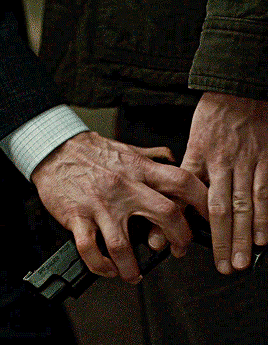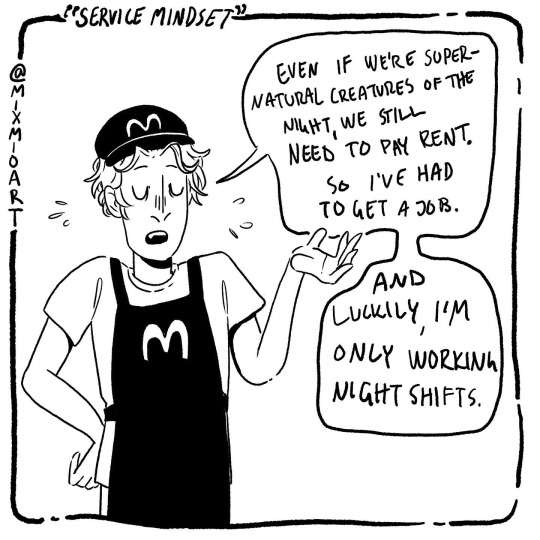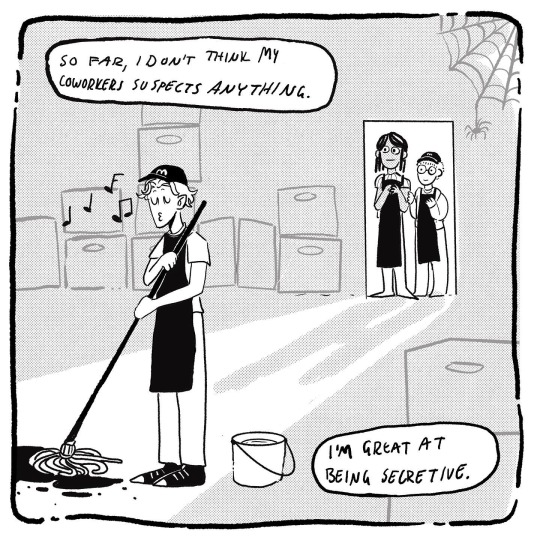Text
a list of 100+ buildings to put in your fantasy town
academy
adventurer's guild
alchemist
apiary
apothecary
aquarium
armory
art gallery
bakery
bank
barber
barracks
bathhouse
blacksmith
boathouse
book store
bookbinder
botanical garden
brothel
butcher
carpenter
cartographer
casino
castle
cobbler
coffee shop
council chamber
court house
crypt for the noble family
dentist
distillery
docks
dovecot
dyer
embassy
farmer's market
fighting pit
fishmonger
fortune teller
gallows
gatehouse
general store
graveyard
greenhouses
guard post
guildhall
gymnasium
haberdashery
haunted house
hedge maze
herbalist
hospice
hospital
house for sale
inn
jail
jeweller
kindergarten
leatherworker
library
locksmith
mail courier
manor house
market
mayor's house
monastery
morgue
museum
music shop
observatory
orchard
orphanage
outhouse
paper maker
pawnshop
pet shop
potion shop
potter
printmaker
quest board
residence
restricted zone
sawmill
school
scribe
sewer entrance
sheriff's office
shrine
silversmith
spa
speakeasy
spice merchant
sports stadium
stables
street market
tailor
tannery
tavern
tax collector
tea house
temple
textile shop
theatre
thieves guild
thrift store
tinker's workshop
town crier post
town square
townhall
toy store
trinket shop
warehouse
watchtower
water mill
weaver
well
windmill
wishing well
wizard tower
86K notes
·
View notes
Text








—Is Will Graham a fragile little teacup or a slutty whore?
4K notes
·
View notes
Text
Your writing will always feel awkward to you, because you wrote it.
Your plot twists will always feel predictable, because you created them.
Your stories will always feel a bit boring to you, because you read them a million times.
They won't feel like that for your reader.
25K notes
·
View notes
Text
I love my life enough until my death is love me more
7 notes
·
View notes
Text
To my writers~
I see this all the time, so I’m here to remind you that your writing IS in fact worth it. YOU are worth it. Your STORIES are worth it. Your writing deserves love and you ARE good enough.
I know — we tend to be our own biggest critics. It’s a million times easier to doubt our own abilities than it is to boast about the things we’ve actually accomplished, but you’ve gotta cut yourself some slack.
We’re all equal here. Don’t you for a second think you’re not good enough to be considered a “worthy” writer. It’s not about skill. Just love for storytelling
2K notes
·
View notes
Text

Daniel Radcliffe as Sherlock Holmes
4 notes
·
View notes
Text





🦇Service Mindset🦇
A look into Charles’ work life.
Don’t be rude to whoever has the midnight shift at McDonalds
Previous comic First comic
WEBTOONS
148K notes
·
View notes
Text
25 negative traits for your characters :
(feel free to use<3 give your characters negative habits and allow themselves to grow out of it, OR appoint someone to help them grow out of it! tw/?? SH)
being too self-centered
being mean to public workers
self bloating 24/7
always plays the victim
blurts out hurtful things unknowingly (or knowingly)
manipulates other's words
breaks trust
puts down the people who love them
makes themselves lonely
is/was a cheater
never learns from their mistakes
morally grey
loves ruining other people's life for fun
lies on a daily basis, (aka can never be trusted)
avoids communication
their way or no way at all
misunderstands people easily
having multiple faces to fit in
brings up sensitive topics to hurt others
<tw> self harms
twisting hair strands as they struggle with anxiety
always suspecting their partners unwantedly
becomes detached due to trauma
being harsh and rebellious
acts unbothered, but actually cares
3K notes
·
View notes
Text
Negative Traits for Your Characters
Talks over others/interrupts
Always has to one-up others
Can’t take criticism
Always plays the victim
Selfish
Pathological liar
Makes everything about them
Bad at sharing
Guilt trips others
Makes special events about themselves
Their way or no way at all
Makes up excuses for everything
Has a reason why nothing is ever their fault
Not a team player
Does jobs halfway
Makes everything a joke
Can’t take a joke
Can’t let others enjoy anything
Stingy with money
5K notes
·
View notes
Text
Love confession prompts:
CW for mention of death
They're drunk and you're carrying them to their room, when they unexpectedly say how much they love you, causing you to drop them on the floor
They end the phone call with an accidental ''love you'', leaving you flustered
Confessing before being separated for an uncertain period of time
Asking them how your name + their surname would sound like (or/and vice versa)
Accidentally confessing while laughing over something
Saying "I love you" while they're sleeping/unconscious/in coma. You know well that they can't hear you, but a small part of you hopes they did
Always giving each other yellow roses for valentine's day, when one day you see that you've got red roses instead
Tears drench your cheeks as you confess. The last thing you hear before dying is them screaming your name
Confessing at the same place where they first met
Scolding them for doing something stupid, wondering "why did I have to fall for you" and not realising that you just said that out loud
(X)
5K notes
·
View notes
Text
Starting Strong Scenes in Your Writing
Scenes are the fundamental building blocks of novels and short stories, and each one should propel a story toward the climax.
Generally speaking, your scene structure should mirror the story structure. In other words, take a novel-writing approach to a scene, crafting a beginning, middle, and end. Like a story, the beginning of a scene should have a strong entry hook that pulls the reader in.
Start with the setting. Often a new scene signifies a change in time and location. Establishing the setting at the top of a scene helps your readers get oriented. It also sets the tone and mood of what will unfold in the coming pages. A setting can serve as much more than a backdrop in literature. Have your scene take place somewhere that builds tension and hinders your protagonist. If you’re writing a thriller, describe a dark and foreboding place where the worst might happen. Be descriptive and use sensory details to make your setting come alive before you jump into the action.
Use visual imagery. In screenwriting, writers have to think in pictures. What images will excite an audience at the top of a scene? Your approach should be the same when writing any kind of fiction. As you write the opening of a scene, use descriptive language to engage a reader through detailed imagery. Think like a screenwriter as you’re writing scenes.
Drop the reader into the middle of the action. Hit the ground running by starting a great scene in media res. It doesn’t have to be a fight scene or a car chase, but physical movement creates momentum and builds tension in a story. It’s also a way to instantly engage a reader. Be sure you begin the scene before the high points of the action so you build up to the scene’s climax.
Write a character-driven scene opener. A good scene starts by giving characters a goal. Start by putting your protagonist in a situation that creates an obstacle or opportunity for both the scene and the overarching storyline. Try starting with dialogue, like an intense conversation between your POV character and a mystery character whose identity is revealed later in the scene. If you’re writing from an omniscient third-person point of view, consider starting a scene with a secondary character, even the antagonist, and use it as a chance for deeper character development.
Summarize past events. You might choose to use the beginning of the scene to do a quick recap of what’s brought your main character to this place and moment in time. A summary is especially helpful if you’re writing in third-person and a new scene switches to a different character. Take the opportunity to remind the reader where we left off. Instead of a straight-forward update, get creative. Go into deep POV and let a character’s thoughts provide the summary instead of the narrator. Be sure to keep this summary brief—just a line or two—so you can get back into the action.
Introduce a plot twist. The start of a new scene is a chance to pivot and take your story in a new direction. Start a new scene at a turning point in your story. Dive into a flashback or character’s backstory, revealing critical information that changes the course of the story going forward.
Keep the purpose of the scene in mind. Effective scenes are clear about what they set out to accomplish and how they contribute to the overall plot. They might include plot points or reveal important information needed to move a story forward. Establish your scene’s intention from the very first word and keep the rest of the scene on point.
Rewrite until you’ve found the perfect scene opening. When you’ve finished the first draft of a scene, go back and read it through. If your scene needs something, but you can’t figure out what, it might be how the scene starts. The best way to know if your opening works is by reading how it plays with the rest of the scene. Review the last paragraph and see if it ties back to your beginning. If the intro feels weak, rewrite it. Maybe your real opener is hidden in plain sight somewhere else in the body of the scene.
Make sure your opening scene is your strongest. While your entire book should be filled with compelling scenes that start strong, the very first scene of your book needs to lead the pack. This is the reader’s introduction to your story and where you’re revealing the characters, the setting, and kicking off the plotline with the inciting incident. This first scene has to hook the reader from the first line so they keep turning the pages.
Read a lot of books. If this is your first novel and you need some inspiration and ideas to help you start off your scenes, start by reading other books. Choose a book by a bestselling writer like Dan Brown or Margaret Atwood. Study the different ways they approach every scene. Reading other authors is a great way to hone your scene-writing skills.
Follow like and reblog if you find these helpful!
6K notes
·
View notes
Text
The Emotion Thesaurus: Adoration
Hello, everyone! I will be starting a new series that will help you the writers describe emotions.
This guide will be a writer’s tool to characters expression.
This section comes from The Emotional Thesaurus by Ackerman and Puglisi.
Adoration
Definition: the act of worship; to view as divine.
Note: the subject of adoration can be a person or thing
Physical Signs:
Lips parting
A slack or soft expression
Waking quickly to erase distance
Mimicking body language
Touching one’s mouth or face
Reaching out to brush, touch or grasp
Steady eye contact, large pupils
Leaning forward
Stroking one’s own neck or arm as a surrogate
Pointing one’s torsos and feet towards the subject
A flushed appearance
Nodding while the subject speaks
Smiling
Open body posture
Releasing an appreciative sigh
Laying hand over the heart
Frequently moistening lips
Pressing palms lightly against the cheeks
Skimming fingertips along the jaw lines
Eyes that are bright
Agreement
Speaking praise and compliments
Keeping trinkets, pictures of the subject
Constantly talking about the subject to others
Rapt attention, still posture
Becoming unaware of one’s environment
A radiant glow
Visible shakiness
Reduced blinking
Closing eyes to savor moment
Speak with a soft voice
A voice that cracks with emotion
Internal Sensations
Quickening heartbeat
Breathlessness
Feeling one’s pulse in throat
Mouth dry
Throat growing thick
Rising body temperature
Tingling nerve endings
Mental Responses
A desire to move closer or watch
Fixating one’s thoughts on the subject
Acute listening and observation
Ignoring distractions
An inability to see the subjects flaws or faults
Cues of Acute or Long-Term Adoration
Obsession
Fantasizing
Believing that the feelings are mutual
A sense of destiny
Stalking
Writing and sending letter, emails, and gifts
Taking risks or breaking laws to be near or with subject
Weight loss
Poor sleep patterns
Jealousy towards those interacting with the subject
Taking on traits or mannerisms of the subject
Carrying something that represents the subject
Possessiveness
May Escalate To:
Love
Desire
Frustration
Hurt
Cues of Suppressed Adoration:
Clenching or hiding one’s hands to hide sweating or shaking
Avoiding conversations about the subject
Watching or observing from afar
Staying out of subjects proximity
Blushing
Sneaking looks at subject
Creating chance run ins
Writing secret letters, keeping diary
Lying about one’s feelings regarding the subject
Writer’s Tip:
Body cues should create a strong mental picture. If the movement is too drawn out or complicated, the emotional meaning behind the gesture may be lost.
Please like, follow and reblog if you find this helpful!
6K notes
·
View notes
Text
— aesthetic words to fill up your vocabulary ♡
✦ if you're tired of using the same repetitive words to describe feelings or actions on your writing, here are some aesthetic words that are not frequently used to help you evolve your vocabulary better and also maybe help you with creative titles <3
ABENDROT: the color of the sky while the sun is setting.
ABIENCE: the strong urge to avoid someone or something.
ACHROOUS: colourless.
AEQUOREAL: marine, oceanic.
AESTHETE: someone with deep sensitivity to the beauty of art or nature.
ALIFEROUS: having wings.
AMITY: warmth and heartfelt friendliness in a friendship; mutual understanding and a peaceful relationship.
AMBROSIAL: fragrant, delicious.
ANTHOMANIA: great love for flowers.
AQUAPHILE: someone who is an enthusiast of all things related to the water.
ARENOCOLOUS: living or burrowing in sand.
ASPERSE: change falsely or with malicious intent; attack the good name and reputation of someone.
ASTERISM: agroup of stars; a constellation; a cluster of stars.
ATTAR: essential oil or perfume obtained from flowers.
AUREATE: golden or gilded; brilliant, splendid.
AURICOMUS: with golden or yellow colored foliage.
AVIOTHIC: the strong desire to be up in the air or to fly.
BALTER: to dance artlessly, without particular grace and/or skill but usually with enjoyment.
BATHIC: pertaining to depths, especially of sea.
BELAMOUR: the one who is loved; a beloved person.
BELLICOSTIC: aggressive, belligerent, warlike.
BENEFICENCE: the quality of being kind or helpful or generous.
BERCEUSE: a quiet song intended to lull a child to sleep.
BLÁFAR: indicating the freshness and beauties of youth or health; attractive and possessing charm.
BRONTIDE: the low rumble of a distant thunder.
BURBLE: to speak in an excited manner.
CAELITIS: the divinities who dwell within the celestial planes.
CATHARSIS: the release of emotional tension, especially through kinds of art or music.
CELERITOUS: swift, speedy, fast.
CERAUNOPHILIA: loving thunder and lightning and finding them intensely beautiful.
CHEVELURE: the nebulous tail of a comet.
CINGULOMANIA: a strong desire to hold a person in your arms.
COCCINEOUS: bright red; scarlet.
COCKAIGNE: an imaginary land of luxury and idleness.
CONSTELLATE: to eluster; to compel by stellar influence.
COSMOGYRAL: whirling around the universe.
CORDOLIUM: heartache; heartfelt sorrow.
CORUSCATE: to reflect brillantly, to sparkle.
CRAMOISY: of a crimson color.
CREATURELY: a person who is controlled by others and is used to perform unpleasant or dishonest tasks for someone else.
CRYSTALLOMANIA: an obsession with crystals and other crystalline objects.
CHRYSALISM: the amnotic tranquility of being indoors during a thunderstorm.
CLINQUANT: glittering with gold and silver.
CLYSMIC: cleaning, washing.
CUPIDITY: greed for money or possessions.
CYANEOUS: a sky-blue color.
CYNOSURE: guiding star; a object of common interest.
DARKLING: of or related to darkness.
DÉCLASSÉ: having fallen in social status.
DEIFORM: god-like or divine in nature.
DEMERSAL: that lives near the bottom or a body of water.
DESIDERIUM: an ardent longing, as for something lost.
DISPITEOUS: cruel and without mercy.
DOUX: sweet, soft, mild, gentle.
DRACONTINE: belonging to a dragon.
DYSANIA: the state of finding it hard to get out of bed in the morning.
ECCEDENTESIAST: someone who fakes a smile.
EFFLORESCENCE: a period or state of blooming, blossoming.
ELEGY: a poem of serious reflection, typically a lament for the dead.
ELEUTHEROPHILIST: someone who advocates free love.
ELYSIAN: beautiful or creative, divinely inspired; peaceful and perfect.
EMACITY: desire or fondness for buying things.
EMPYREAL: pertaining to the sky; celestial.
EPHIALTES: a nightmare; the demon Incubus that supposedly causes a nightmare.
EPICARICACY: the joy that results from others misfortune.
EREMOPHOBIA: the deep fear of stillness, solitude, or deserted places.
ETHEREAL: extremely delicate, light, not of this world.
EUMOIRIETY: happiness due to state of innocence and purity.
FLORENTIS: abounding in flowers; being in bloom and adorned with plentiful flowers.
FREICEADAN: guard, garrison, watch, sentinal.
FULMINATE: cause to explode violently and with loud noise.
FURCIFEROUS: brat; rascally, scandalous.
GLOAMING: twilight, dusk.
GRAME: anger, wrath, scorn; sorrow, grief, misery.
HALCYON: calm and peaceful; happy, prosperous.
HELLION: a rowdy or mischievous person.
HELIOPHILIA: desire to stay in the sun; love of sunlight.
HEAVENIZE: to render like heaven or fit for heaven, to purify and make a holy place or a person.
HENOTIC: promoting harmony or peace.
HIRAETH: a homesickness for a home you can't return to, or that never was.
HOLILY: belonging to or derived from or associated with a divine power.
HYPNAGOGIC: the state immediately before falling asleep.
IGNICOLIST: a worshiper of fire.
ILLECEBROUS: attractive and alluring.
IMPLUVIOUS: soaked with rain.
INCANDESCENCE: light produced by high temperatures.
INCALESCENCE: the property of being warming.
INCENDIARY: designed for the purpose of causing a fire, likely to cause anger or violence.
INEFFABLE: too great or extreme to be expressed or described in words.
INSOUCIANT: free from worry, concern or anxiety.
IRENIC: aiming or aimed at peace, promoting peace.
IRIDESCENT: producing a display of rainbow-like colors.
INVIDIARE: to envy.
ISOLOPHILIA: a strong preference and affection for solitude.
KALOPSIA: the delusion of things being more beautiful than they really are.
KALON: beauty that is more than skin deep.
LACONIC: expressing much in a few words.
LACUNA: a blank space; a missing part.
LATIBULE: a hiding place, a place of safety and comfort.
LAMBENT: to glow or flicker softly. Luminous, light or brilliant.
LIMERENCE: the state of being infatuated with another person.
LONGANIMITY: still suffering while planning revenge.
LOUCHE: disreputable; morally dubious.
LUCIFORM: resembling light in appearance; having, in some respects; the nature of qualities of light.
LUMINESCENCE: light produced by chemical, electrical or physiological means.
MALTALENT: the negative emotions of wanting injury or harm to befall someone; a hostile behavior or attitude towards someone considered an enemy.
MARMORIS: the shining surface of the ocean.
MAZARINE: a dark blue color; rich blue or reddish-blue color.
MELIORISM: the belief that the world gets better; the belief that humans can improve the world.
MÉLOMANIE: an excessive and abnormal love and deep attraction to music and melody.
MERCURIAL: subject to sudden or unpredictable changes.
MESMERIC: appealing; drawing attention.
MORDACIOUS: biting or given to biting; biting or sharp in manner; caustic; capable of wounding.
MORPHEAN: of or relating to Morpheus, to dreams, or to sleep.
MOXIE: courage, nerve, determination.
NEBULOCHAOTIC: a state of being hazy and confused.
NEFARIOUS: wicked, villainous, despicable.
NEMESISM: frustration, anger or aggression directed inward, toward oneself and one's way of living.
NERITIC: pertaining to shallow coastal waters.
NOETIC: of or associated with or requiring the use of mind.
NOIRCEUR: the state of being pitch black in color; a state of lacking illumination.
NUBIVAGANT: wandering in the air, moving through the air.
NUMINOUS: spiritual or supernatural; surpassing comprehension or understanding; mysterious.
ONEIRODYNIA: restless, disturbed sleep, characterized by nightmares and sleepwalking.
OPHIOMORMOUS: snake-like.
ORPHIC: mysterious and entrancing, beyond ordinary understanding.
PETRICHOR: the scent of rain on dry earth.
POIESIS: creation; creative power or ability.
PORPHYROUS: purple; of purple hue.
PRATE: to talk excessively and pointlessly.
PROCELLOUS: tempestuous, stormy.
QUIDDITY: the essence of something.
QUIXOTIC: extravagantly chivalrous or romantic; visionary, impractical or impracticable.
RANTIPOLE: a wild, reckless young person; to be wild and reckless.
REDAMANCY: the act of loving the one who loves you; a love returned in full.
REDOLENT: having a strong distinctive fragrance; serving to bring to mind.
REMEANT: coming back, returning.
RESPLENDENT: having brilliant or glowing appearance; dazzling and impressive in appearance through being richly colorful or sumptuous.
REVERIE: a state of being pleasantly lost in one's thoughts; a daydream.
RODOMEL: juice of roses mixed with honey.
ROSEATE: rose-like; overly optimistic.
RUTILANT: glowing or glittering with red or gold light.
SANGUINEOUS: accompanied by bloodshed.
SASHAY: to strut or move about in an ostentatious or conspicuous manner.
SCIAMACHY: a battle against imaginary enemies; fighting your shadow.
SEQUACIOUS: lacking independence of originality of thought.
SERAPHIC: beautiful and pure; having a sweet nature befitting an angel or a cherub; of or relating to an angel of the first order.
SERENDIPITY: finding something good without looking for it.
SKINT: having little or no money avaliable.
SOLIVAGANT: someone who wanders or travels the world alone; a solitary adventurer.
SOMNIATE: to dream, to make sleepy.
SORTIGER: delivering prophecies of the future; having the qualities of being oracular.
STELLIFEROUS: having or abonding with stars.
STELLIFY: to transform from an earthly body into a celestial body; to place in the sky as such.
SUCCIDUOUS: ready to fall, falling.
SPUME: a white mass of bubbles or froth on the top of a wave.
SYNODIC: relating to or involving the conjunction of stars, planets or other celestial objects.
TARANTISM: the uncontrollable urge to dance.
TEMENOS: a sacred circle where no one can be oneself without fear.
THANATOPHOBIA: fear of death.
TYYNEYS: the state of peacefulness; absent of worry or fear, being composed and at ease.
ULTRAMARINE: beyond the sea; greenish-blue color.
VELLEITY: a wish or inclination not strong enough to lead to action.
VENERATION: a profound emotion inspired by a deity.
VESPERTINE: in or of the evening; setting at the same time as, or just after, the sun.
VERDANT: with plants and flowers in abundance.
VERMEIL: a liquid composition applied to a gilded surface to give luster to the gold.
VERTICORDIOUS: to turn the heart from evil.
VIOLESCENT: tending toward violet color.
VORFREUDE: the joyful anticipation that comes from imagining future pleasures.
WANDERLUST: a strong desire to travel and explore the world.
WHIST: to hush or silence; to still, to become still.

cerezzzita©, 2022 · all rights reserved
10K notes
·
View notes
Text

Saw this in the bpdmemes Reddit. I was just explaining my bpd emotional amnesia to my sister today.
3K notes
·
View notes


